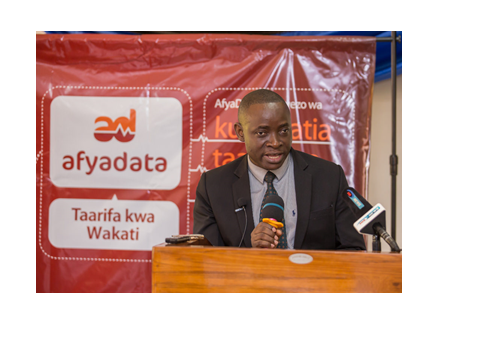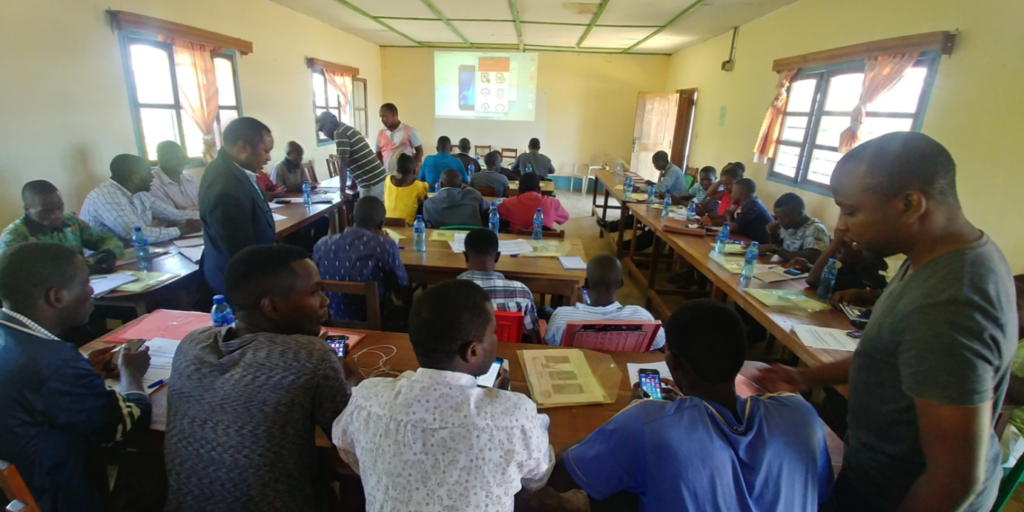
Hello Esron, thank you for taking the time to talk to us. Please could you tell us what SACIDS does?
The Southern African Centre for infectious Disease Surveillance–Africa Centre of excellence for Infectious Disease Surveillance (SACIDS-ACE) is a One Health partnership of medical and veterinary institutions that was established in 2008. It links academic and research institutions in Southern Africa, which deal with infectious diseases of humans and animals, in an innovative partnership with world-renowned centers of research in high income countries. These include the University of London Colleges, which constitute the London International Development Centre (LIDC) including the Royal Veterinary College (RVC) and the London School of Hygiene and Tropical Medicine (LSHTM). Other partnerships include the International Livestock Research Institute (ILRI), and other institutions in the USA, UK and Asia. This collaboration is further reinforced at the national level by forming national virtual centres for infectious diseases known as National Centres for Infectious Disease Surveillance (NatCIDS). Collectively, the NatCIDS form the core of SACIDS. The Headquarters of SACIDS is located at the Sokoine University of Agriculture (SUA), Morogoro, Tanzania which hosts SACIDS secretariat.
The center proactively pursues the goal of developing an effective African research capacity for infectious diseases
The vision and mission of the centre is rooted in the quest for enhancing Africa’s capacity for the science of evidence-based risk management where infectious diseases are concerned through the One Health approach. The focus of SACIDS – ACE is to address infectious diseases in the African endemic settings through a collaborative effort between natural and social sciences to advance the understanding of interactions between humans, animals and the environment to improve public and animal health. The center proactively pursues the goal of developing an effective African research capacity for infectious diseases through postgraduate training and research programmes that focus on African problems, through the lens of African health and economic development and in context of the global agenda.

And what is your role within SACIDS?
I am leading One Health Sciences Community of Practice (CoP) under SACIDS. This is part of the “Community Level One Health Security” strand whose research activities focus on participatory disease surveillance systems enhanced by mobile technologies. We also undertake integrative research approaches to disease burden in pastoral communities and their livestock. This strand further examines cross-cutting issues for One Health, including health or food systems, as well as interaction between agriculture and human health.
I also lead implementation of a research project titled Enhancing community-based disease outbreak detection and response in East and Southern Africa (DODRES). This work is supported by the Ending pandemics (formerly Skoll Global Threats Fund (SGTF). It is implemented collaboratively by different institutions coordinated by SACIDS which are:
- The Tanzania National Institute for Medical Research (NIMR)
- Kenya Medical Research Institute (KEMRI)
- Morogoro Municipal and Ngorongoro District Councils (Tanzania)
- Narok County Government (Kenya)
- Ministries responsible for Health and Livestock Development in Tanzania and Kenya.
The USA-based Innovative Support to Emergencies, Diseases and Disasters (InSTEDD) plays an important role as mentor for information, communication and technology (ICT) programmers working with SACIDS. The project is based on a theory of change that aims at promoting community level One Health security that will progressively contribute to disease detection and response at community level and thence national, regional and global levels. To achieve this, the project employs digital technology (AfyaData) to promote participatory disease surveillance in human and animal populations, and their environment. Through improved outbreak detection, early communication between sectors and neighboring countries coupled with rapid response at source, the project contributes to the reduction of outbreaks, consequently reducing the likelihood of pandemics, or even eliminating them completely.
The overall goal of the project is to promote community-level One Health security, thus complementing international disease surveillance strategies with participatory engagement of local communities and enhancing early disease detection and response not only at the community level, but also at national, regional, and global levels.
The overall goal of the project is to promote community-level One Health security, thus complementing international disease surveillance strategies with participatory engagement of local communities and enhancing early disease detection and response not only at the community level, but also at national, regional, and global levels. Specifically the project seeks to:
- Enhance working across animal and human sectors to fight epidemics in human and animal populations
- Develop ICT tools to support data capture, reporting, and feedback at health facilities and within communities that feed into the official Integrated Disease Surveillance and Response (IDSR) and veterinary national surveillance systems
- Strengthen local cross-border collaboration in the fight against epidemics, through enhanced capacity for early detection of unusual disease events and mutual cross-border trust.
In addition to research leadership and management, I have administrative responsibilities at Sokoine University of Agriculture as Director for Postgraduate Studies, Research, Technology Transfer and Consultancy.
More to come…
On Tuesday 25th September, we will hear more about AfyaData and its role in disease surveillance in the second part to our interview with Esron.

Comments